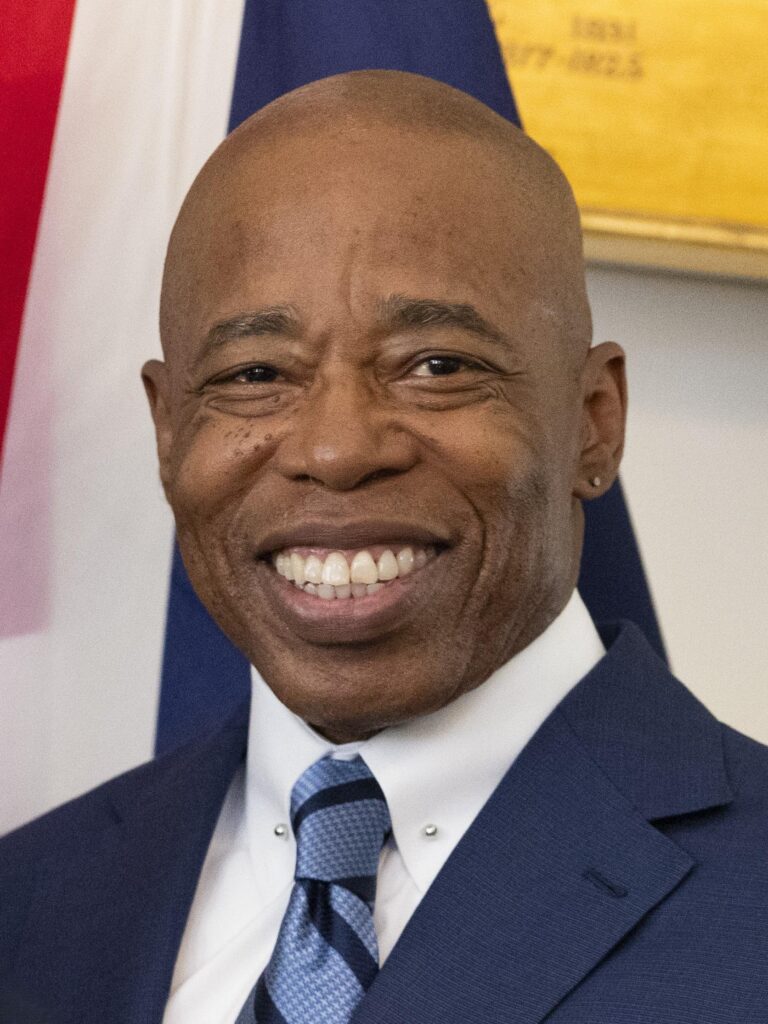Mayor Eric Adams Advances Free Trash Bin Program Amidst City Council Disputes
In a bold effort to address persistent sanitation issues and public dissatisfaction with waste management, Mayor Eric Adams has declared that the city will allocate dedicated funding to provide free trash bins to all homeowners. This initiative is designed to equip residents with essential waste disposal tools at no cost, aiming to enhance neighborhood cleanliness and reduce illegal dumping. The mayor’s announcement comes amid ongoing disagreements with the City Council over budget priorities and program feasibility, underscoring his determination to improve environmental conditions across the city.
Mayor Adams Pushes Forward with Free Trash Bin Funding Despite Council Resistance
Mayor Adams remains steadfast in his commitment to distribute free trash bins to homeowners, even as several City Council members voice opposition. He insists that the city’s budget will cover the costs, overriding council proposals to cut or reallocate funds. Proponents argue that supplying bins at no charge will foster responsible waste disposal habits, decrease littering, and bolster recycling participation citywide.
The friction between the mayor and council reflects deeper disagreements about fiscal priorities. While council members cite budget limitations and question the program’s sustainability, the mayor highlights the long-term benefits, including potential savings from reduced waste cleanup and improved public health. Key perspectives include:
- Mayor Adams: Advocates for investment in free bins to enhance sanitation and deter illegal dumping.
- City Council: Raises concerns about budget strain and urges prioritization of other essential services.
- Environmental Advocates: Endorse the mayor’s plan as a positive step toward healthier communities.
| Stakeholder | Position | Desired Outcome |
|---|---|---|
| Mayor Adams | Allocate city funds for bin procurement | Universal access to trash bins for homeowners |
| City Council | Delay or reduce funding | Reallocation of budget to other priorities |
| Community Groups | Support free bins to promote cleaner neighborhoods | Improved waste management and public health |
City Council Voices Financial and Strategic Concerns Over Waste Management Plan
The City Council has articulated significant worries regarding the fiscal impact of the mayor’s free trash bin initiative. Members caution that the program’s upfront and ongoing expenses could impose a heavy burden on the municipal budget, potentially necessitating cuts to other vital services. They also emphasize the absence of a clear, sustainable funding model, which raises questions about the program’s viability in future years.
Beyond financial issues, council leaders call for a thorough evaluation of the city’s waste management approach before committing additional resources. Their concerns focus on:
- Operational Efficiency: Are current collection and recycling systems prepared to handle increased bin distribution?
- Environmental Outcomes: Will the program improve waste sorting or inadvertently increase landfill waste?
- Long-Term Financial Stability: What safeguards exist to maintain funding beyond initial implementation?
| Budget Category | Projected Cost | Council’s Concerns |
|---|---|---|
| Trash Bin Acquisition | $4.5 million | Significant initial expenditure |
| Maintenance and Replacement | $1.2 million annually | Ongoing financial commitment |
| Waste Management Operations | $3 million | Questions about program effectiveness |
Environmental Experts Highlight Benefits and Practical Challenges
Environmental professionals commend the city’s initiative to fund free trash bins, noting its potential to increase recycling rates and alleviate landfill pressures. Dr. Lisa Morgan, a specialist in urban sustainability, states, “Providing residents with accessible waste disposal options is directly linked to higher recycling engagement, which can substantially reduce the city’s carbon emissions.” The program is anticipated to improve waste segregation at the source, a critical factor in enhancing recycling efficiency.
Nevertheless, experts caution about the logistical and financial complexities involved in rolling out the program, including:
- Coordinating distribution across varied neighborhoods with differing needs
- Ensuring equitable bin access for residents in apartment complexes and multi-family units
- Managing ongoing maintenance and replacement expenses
- Aligning efforts with private waste collection companies to standardize services
| Challenge | Potential Impact | City’s Mitigation Strategy |
|---|---|---|
| Distribution Logistics | Possible delays in bin delivery | Phased rollout prioritizing high-need areas |
| Multi-Unit Residences | Unequal access to bins | Issuance of special permits and shared bin programs |
| Maintenance Expenses | Risk of budget overruns | Annual budget reviews and public-private partnerships |
Fostering Collaboration for Sustainable Waste Management Success
To ensure the success of the free trash bin program, it is essential to cultivate strong collaboration among city officials, community organizations, and waste management providers. Establishing consistent communication channels—such as regular meetings and workshops—will enable stakeholders to share insights, address challenges, and refine operational strategies. This cooperative approach can also pave the way for innovative solutions, including the adoption of smart bin technologies that optimize collection routes and reduce environmental impact.
Central to this strategy is the development of a shared accountability framework that clearly defines the roles and responsibilities of all parties involved. The table below outlines key stakeholders and their contributions:
| Stakeholder | Responsibility | Contribution |
|---|---|---|
| City Council | Policy oversight and funding approval | Authorize budgets and support regulations |
| Mayor’s Office | Resource allocation and public communication | Mandate funding and lead outreach efforts |
| Waste Management Companies | Program implementation | Manage collection logistics and bin upkeep |
| Community Organizations | Engagement and education | Conduct awareness campaigns and gather resident feedback |
- Joint monitoring systems to track program effectiveness and enable adaptive management.
- Coordinated educational initiatives promoting proper waste sorting and disposal habits.
- Responsive complaint mechanisms allowing residents to report issues promptly.
Looking Ahead: Navigating the Path to Cleaner Neighborhoods
The ongoing debate between Mayor Adams and the City Council over funding free homeowner trash bins represents a pivotal moment in the city’s approach to waste management. While the mayor’s initiative aims to alleviate residents’ financial burdens and foster environmental stewardship, council members remain cautious about fiscal sustainability and program efficacy. The resolution of this dispute in the coming weeks will be critical in shaping the city’s future policies on sanitation, sustainability, and public service delivery.













